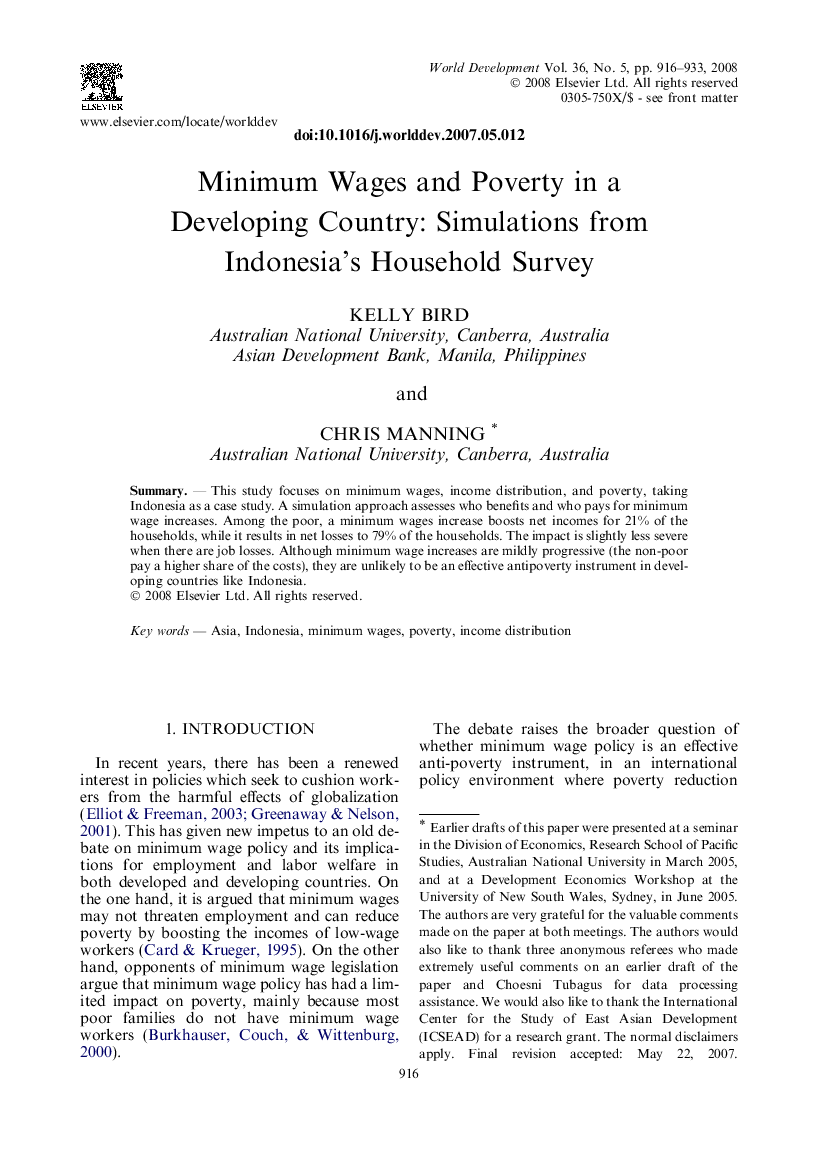| Article ID | Journal | Published Year | Pages | File Type |
|---|---|---|---|---|
| 991074 | World Development | 2008 | 18 Pages |
Abstract
SummaryThis study focuses on minimum wages, income distribution, and poverty, taking Indonesia as a case study. A simulation approach assesses who benefits and who pays for minimum wage increases. Among the poor, a minimum wages increase boosts net incomes for 21% of the households, while it results in net losses to 79% of the households. The impact is slightly less severe when there are job losses. Although minimum wage increases are mildly progressive (the non-poor pay a higher share of the costs), they are unlikely to be an effective antipoverty instrument in developing countries like Indonesia.
Related Topics
Social Sciences and Humanities
Economics, Econometrics and Finance
Economics and Econometrics
Authors
Kelly Bird, Chris Manning,
